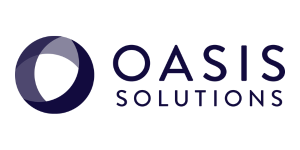Many companies see CRM as a tactic instead of a strategy. This view is incorrect. CRM (Customer Relationship Management) is a company-wide business strategy. The following information will assist the reader in creating a CRM strategy.
A CRM Strategy
Identify the Best & Worst Customers
A business relationship requires that we identify good customers and collaborate with them to create value that will benefit both parties. To do this, you must first identify customers with whom you should form a more meaningful relationship. If you don't have the time or resources to give all your customers the deep, beneficial focus you would like, spend your resources where there will make the biggest impact. Deciding which customers to focus on is the first and most important strategic decision.
Assign Value Differently
Your company needs to determine which customers are its best, average and worst. Each group receives an appropriate proportion of your resources depending on your company goals.
Compete on Scope
One way of discriminating among customers is to become more relevant to them. This may mean broadening the range of products, services or solutions your company offers. Collaborating with third parties to ensure your customers receive what they want and need rather than insisting on your solutions can create a more beneficial relationship.
This is a major strategic departure from old belief and may seem counter-intuitive. Many companies believe that growing larger gives a business the economies it needs to succeed. Being larger does not always offer the opportunity to be more relevant. Instead, larger companies may be less able to cater to individual needs with policies designed for efficiency over effectiveness.
Focus on Strategic Capabilities
Plans can become outdated, rapidly. This can make managers reluctant to create plans or strategies. Strategies should be framed in terms of strategic capabilities rather than strategies. A plan based on a range of capabilities that the company should have (including technology, people, knowledge and processes) to prevent it from quickly becoming obsolete.
CRM initiatives can be difficult if the only focus is technology. People and organizations must receive sufficient attention. Stakeholders including suppliers, employees and channel intermediaries form a chain of relationships. The end-customer relationship can only be as strong as the weakest link. Create durable bonds with your stakeholders to benefit all your relationships.
Customer-centric Innovation
The core of CRM is creating new and mutually beneficial customer value. This means companies need to have processes in place for customer inclusion and collaborative innovation. Using off-line research and product definition is the old innovation style. Instead, reap the most benefits by involving the customer throughout the process.
Measure Customer Performance
Instead of measuring product, product line and divisional profitability focus on customer profitability with the goal of improving it.
Unlearn & Relearn (then Repeat)
To realize the benefits of CRM, you need to unlearn the principles of "mass" everything. Customization is key. While "mass" (production, selling, marketing) may have made your company successful in the past, today it may be holding you back. Holding onto these old practices can threaten your company's ability to adapt and rise to new heights. Unlearning can be hard to do, since it means changing entrenched attitudes throughout the chain of relationships.
Inside most companies, there is tension between those who "get" CRM and those who do not. For CRM to take hold and move your company into new territory, those who don't "get" CRM will need to learn and relearn what it is and the potential it holds.
Refine Your Focus
A company utilizing CRM should learn to see focus in terms of customers, not products or services. Significant changes will have to be made to processes as your company begins to supply customers with what they want rather than what you think they should want. These changes are difficult and must be pre-sold to stakeholders early in the process to ensure success.
The New Competition
Old marketing rules are broken and ineffective. Relying on outdated strategies is a poor basis for making your company a success. In the era of CRM, customers are increasingly targeting customers rather than vice versa. The old reliable principles of product, price, promotion and distribution do not address this new reality. Your company must move beyond old marketing restrictions.
CRM: Your Business as it Could Be
Think of CRM as "your business as it could be". If you do not already have one, your company may benefit from a comprehensive plan to take you to this destination. If you have a plan but your destination is remaining elusive, now might be the right time to revise and refine your CRM strategy.
Have questions about CRM or CRM Strategy? Contact us and we can help get you on the right path.


